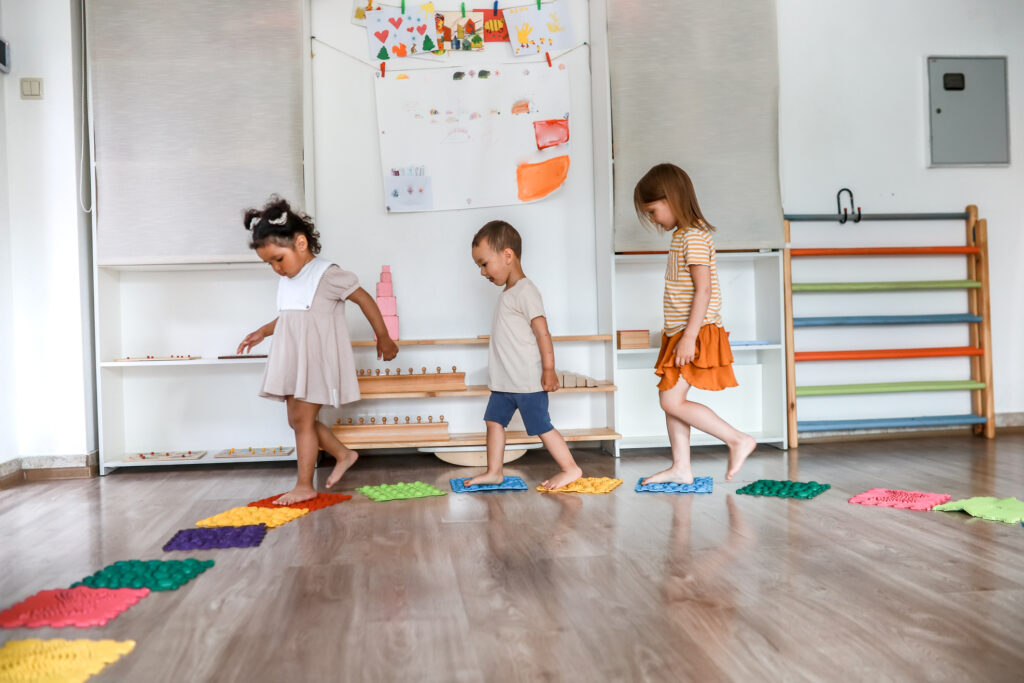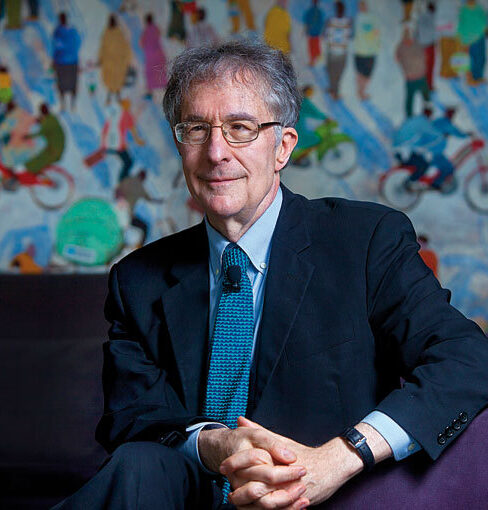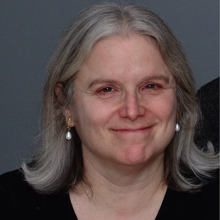“There is a vast difference between knowing the right thing to do and actually doing the right thing,” Nobel-winning economist Thomas Schelling once said.
The evidence is unequivocal: early childhood education is one of the most impactful investments a society can make. Ninety percent of brain development occurs before the age of five, and decades of interdisciplinary research demonstrate the profound, long-term benefits of high-quality early learning — not only for individual children and their cognitive, physical, and social-emotional development, but for society as a whole.
Nobel laureate James Heckman estimates that every dollar invested in early childhood education yields an estimated seven dollars in societal return — through improved academic outcomes, reduced crime and poverty, and increased lifelong productivity. These findings have shaped policy discussions for years. And yet, the full promise of early education remains unrealized.
The Benefits of Early Childhood Education
Despite overwhelming evidence of its positive impact, support for early childhood education remains vulnerable to political and ideological shifts. Whatever the motivation, attacks on early childhood education will almost certainly undermine decades of progress. Head Start, a program that supports children’s learning and development from birth through age five in low-income families, plays a vital role in fostering school readiness and helping families move toward self-sufficiency.
Research suggests that Head Start improves educational achievement and interrupts cycles of intergenerational poverty. The program also receives strong public and bipartisan support. Still, many of the large-scale studies that inform today’s policies were conducted in the late 20th century, during a period when the U.S. occupied a uniquely dominant global position. To meet the needs of a rapidly changing world, we must broaden the evidence base — and the perspectives that inform it.
Educators in the U.S. can learn a lot from other cultures. For the past few decades, researchers at Project Zero, a research center at the Harvard Graduate School of Education, have partnered with educators worldwide to understand and support thinking and learning from early childhood through adulthood.

What Other Cultures Can Teach Us
In a long-term collaboration with the renowned preschools in Reggio Emilia, Italy, Project Zero researchers investigated the relationship between individual and group learning.
In the U.S., the rights and freedoms of the individual are paramount. Most American schools emphasize individual success and achievement. Typical curricular units in early childhood begin with “all about me,” and then may expand to the family, classroom, school, and larger communities.
Although this sequence may appear developmentally logical, Project Zero challenged the assumption that “me” must come before “we.” Working with educators in Reggio and beyond, Project Zero has examined how young children come to understand themselves as both autonomous and deeply interdependent — and how schools can intentionally nurture that dual identity.
Reframing Education Through the Reggio Lens
The Reggio approach challenges four assumptions that most Americans have taken for granted:
1. Learning is primarily an individual, not group, activity.
Reggio educators see the primary aim of schools as educating not just citizens of a particular city or nation, but citizens of the world who both know their own culture and are open to other cultures. In Reggio, the mission of schools is to create as well as transmit knowledge, culture, and democracy. Learning in groups is central to this mission.
2. Teachers are consumers, not generators, of theory.
The American investment in standardized tests demonstrates a profound (if not intentional) lack of trust in teachers as assessors of student thinking and learning. Reggio teachers regularly document student learning: on the basis of these detailed and vivid records, the educators identify next steps that will deepen or extend learning and generate new hypotheses about teaching and learning.
3. Assessment focuses on outcomes, not learning processes.
Conventional assessment often reduces learning to a final product. Reggio’s practice of documentation makes the learning process itself visible. This approach — what we have termed the “process-folio” — shifts the focus from summative evaluation to formative understanding. It invites interpretation and the inclusion of multiple perspectives, offering a more nuanced portrait of how children think and grow.
4. Teaching and learning are primarily cognitive, rather than aesthetic, ethical, or affective acts.
According to Mary Helen Immordino-Yang, Project Zero’s long-time research colleague, it is neurologically impossible to think deeply about things you don’t care about. In Reggio classrooms, teachers seek to make the ordinary extraordinary; they strive to engage students cognitively, aesthetically, emotionally, and ethically in their learning. Loris Malaguzzi, founder of the Reggio Approach, memorably declared, “Nothing without joy.”
Looking Ahead
As we navigate the second quarter of the 21st century, the challenges we face — political, environmental, technological, and societal — demand new ways of thinking, working, and learning together. The U.S. cannot meet these challenges alone. Nor can our educational system be shaped solely by domestic assumptions.
We will need to work together to identify and solve problems, to listen to one another, and to understand different perspectives. We in the U.S. can learn a great deal from other cultures, such as Reggio, and vice versa.
At Project Zero, our current work seeks to understand how young children conceptualize “I,” “we,” and “they” — and what kinds of early experiences foster the development of adults who value collaboration, empathy, and the common good.
Without research-based efforts to reimagine the purposes and practices of early education — and without the courage to learn from others — it is difficult to see how we will rise to meet the demands of this century, let alone secure a future for the next.
How to Help
Project Zero is an education research group founded in 1967 located at the Harvard Graduate School of Education. Funded only by grants and gifts, Project Zero develops educational frameworks, which have been adopted by educators all over the world, to promote thinking and understanding. Donate today to support this work.

More from Better Magazine
- Q&A with Howard Gardner
- ‘Synthesizing Minds’ and What It Means for Your Child, from Howard Gardner, Creator of Multiple Intelligences Theory
- A Fireside Chat with Harvard Professor and Psychologist Howard Gardner
- Howard Gardner on Truth and Cheating
- 6 Expert Education Tips to Help Your Child Thrive in their Learning Environment

Howard Gardner is a renowned Harvard psychologist, educator, and MacArthur Genius. Gardner was a founding member of Harvard Project Zero (HPZ) in 1967, and in more recent years has served in a variety of leadership positions for the research group. Gardner’s research encompasses the development of moral and ethical understandings and behaviors, from early years through higher education and into the professions. Recently, Gardner has studied the nature of human synthesizing —a topic introduced in his 2020 memoir, A Synthesizing Mind.

Mara Krechevsky is a senior researcher at Project Zero with more than 30 years of experience in education research. Through PZ, Krechevsky is working on the Pedagogy of Play project, a collaboration with the Lego Foundation and the International School of Billund, Denmark, to develop a pedagogy of play from preschool to middle school. Other projects and research interests include Educating for American Democracy, 21st Century Excellence, and Cultivating Civic and Creative Capacities.

